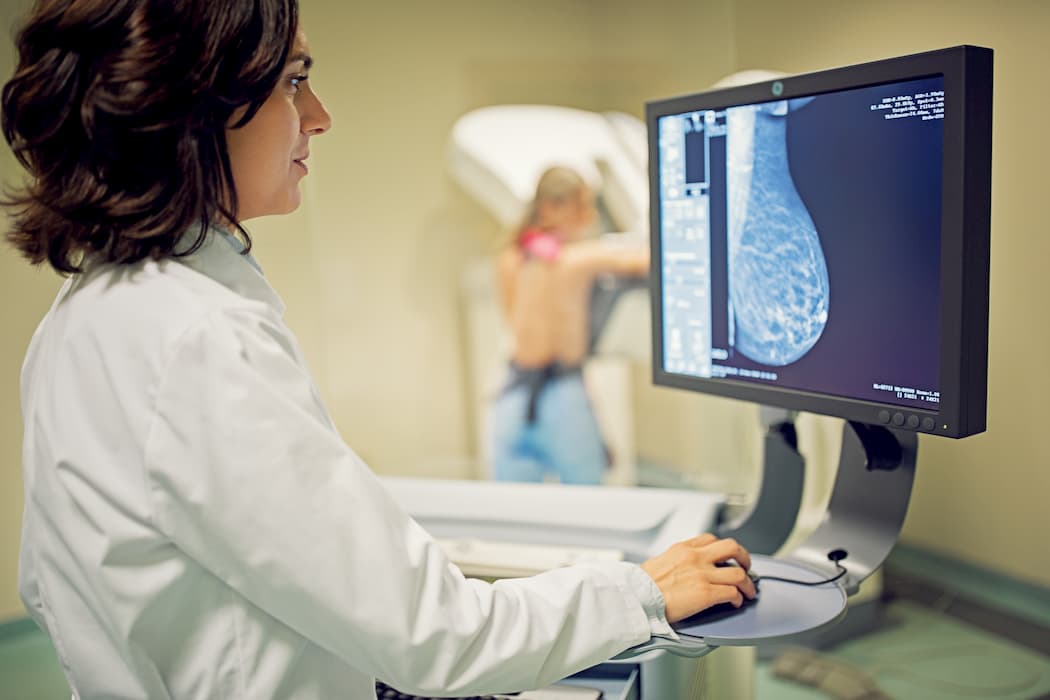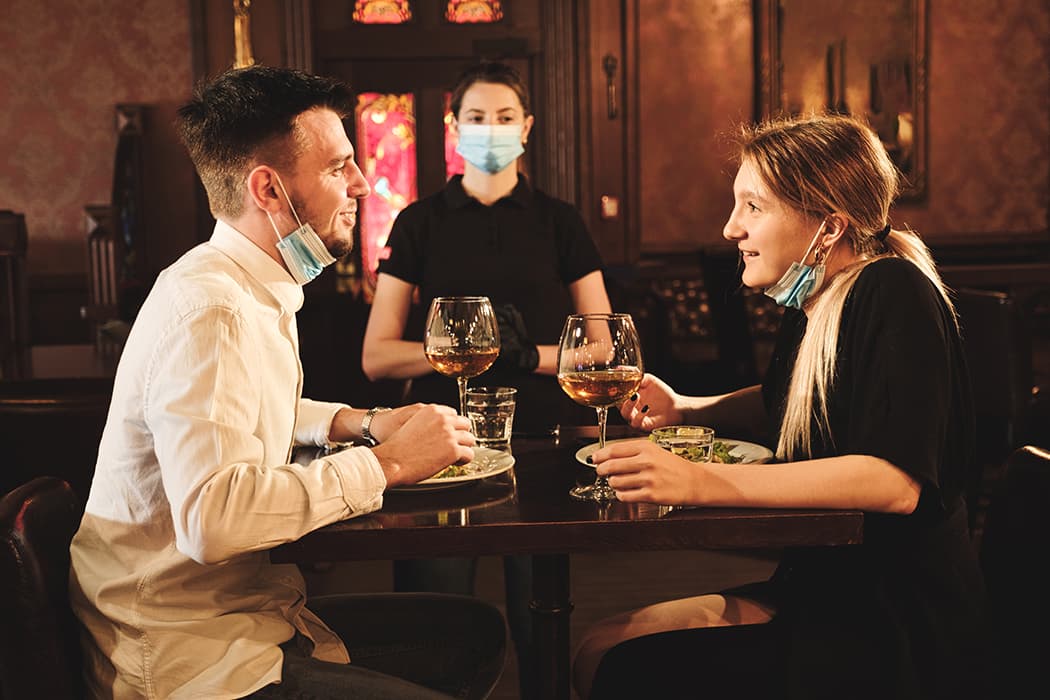My Treatment Has Ended, What Do I Need to Know?
After your cancer treatment is finished, medical follow-up will continue and it’s important that you change a few habits.

After the end of treatment, it’s common to have a lot of questions about the next steps. Learn about what you should do right now and some habits you can adopt to have more quality of life at this phase.
How follow-up medical care works after your cancer treatment
Even after your cancer treatment has ended, a follow-up care is necessary to guarantee an early diagnosis of any potential metastasis or the cancer coming back, as well as checking your nutritional and clinical conditions. Moreover, appointments with different specialists are essential to treat late side effects, whether physical or emotional.1-4
Doctor’s appointments - The oncologist will follow up with you for a few years. How often and for how long you’ll need to keep going to appointments will depend on the type of cancer you had and your health condition. The doctor will probably talk about symptoms you may have, request blood tests and medical imaging, and specific tests to check if malignant cells still exist or came back.1-4
Treating side effects - Chemotherapy, radiotherapy, immunotherapy and hormone therapy can have side effects that may persist or arise after cancer treatment ends. That's why it may be necessary to recover bone and muscle mass, correct nutritional deficiencies, treat sexual dysfunctions (especially in patients who have treated prostate or gynecologic cancers), associated comorbidities, among others.1-4
Psychotherapy and emotional support - In this post-treatment phase, patients may have some trouble going back to their usual routine. Some patients feel nervous and insecure even about going back to follow-up appointments and monitoring procedures, or start showing symptoms of post-traumatic stress. Fear of close relatives developing cancer for genetic reasons is also frequent. For these reasons, psychologists, psychiatrists and cancer survivor support groups are important to provide emotional well-being.1-4
Remission: how do I know I'm cured after cancer treatment?
Complete cancer remission is when cancer cells are no longer detected in imaging and laboratory tests, while partial remission is when the malignant tumor decreases in size but it’s still there.
Patients can be considered cured when there are no signs of the disease after years of treatment. There is not a specific, definite period to accomplish this, because it depends on the cancer type and its severity. Therefore, it’s important to go to all monitoring medical appointments even when in remission.6
Risks of recurrence after cancer treatment: can we predict them?
Recurrence occurs when the disease returns after treatment, even after a long time in remission. It could be regional, when the cancer comes back in the same area, or metastatic, when it reappears in another area. It’s not possible to predict a recurrence, but some cancer types have a higher tendency than others.7
Changing habits is a must after cancer treatment
After cancer treatment, besides a continuous medical follow-up, you need to follow a few healthy habits to fully recover. It’s impossible to prevent cancer recurrence completely, but it’s possible to lower the chances, as well as for those who have never had cancer. Check which habits you can have to do a secondary prevention:8
First month after the end of cancer treatment - Your white blood cells return to a normal level over time, but immunity does not fully recover. Some precautions to prevent infections are:5
- Avoid too much sun exposure;
- Always wash your hands after going to the bathroom or when getting home;
- Avoid eating at places you don't know or that don't seem to have good hygiene protocols.5
Physical activity - Talk to your doctor about starting or resuming exercising and choosing what’s appropriate for your needs. Exercising can help you relax, regain muscle mass and physical ability, improve quality of life, and decrease fatigue.9
Healthy eating – It’s a crucial step to lower the chances of developing other chronic diseases, as well as obesity, hypertension, diabetes and cardiovascular diseases. Even after treatment and when patients are in remission, there are some important healthy tips that should become habits.8
- Choose natural and organic food, with as little pesticides and fertilizers as possible, and include fruit and vegetables in your meals;
- Eat high-protein and high-fiber food, such as lean meat, fish, cereals, and whole bread, to help your muscles recover;
- Read the labels and avoid foods - even if they’re advertised as healthy or light - that have as first ingredients: hydrogenated vegetable oil, sucrose, sugar, glucose, corn or glucose syrup;
- Avoid eating ultra-processed food, which is high in calories/fat and poor in nutrients, and increase obesity chances. Examples: sandwich cookies, instant noodles, fried food, soda, and cake mixes;
- Use little salt, oil, and sugar when cooking; opt for baking and stewing food instead of frying; get used to drinking juice, tea and coffee without adding sugar;
- Avoid smoking and drinking alcohol.
Talk to your healthcare providers and ask about good health practices to recover after cancer treatment.
References:
1 - Henry NL, Shah PD, Haider I, et al. 88 - Cancer of the Breast. Available at: https://www.sciencedirect.com/science/article/pii/B9780323476744000888. Access on: October/2019.
2 - DeVita VT, Lawrence TS, Rosenberg AS. Cancer: Principles & Practice of Oncology. Available at: https://www.academia.edu/15496945/Cancer_-_Principles_and_Practice_of_Oncology. Access on: October/2019.
3 - National Comprehensive Cancer Network (NCCN). Clinical Practice Guidelines in Oncology: Breast Cancer. Version: 2.2019 Available at: https://www.nccn.org/professionals/physician_gls/pdf/breast.pdf. Access on: October/2019.
4 - Ruddy KJ, Partdiz AH. Approach to the patient following treatment for breast cancer.
5 - ABRALE: Brazilian Lymphoma and Leukemia Association (“Associação Brasileira de Linfoma e Leucemia”). The joy of a cancer remission (“A alegria da remissão de um câncer”). Available at: https://www.abrale.org.br/revista-online/a-alegria-da-remissao/. Accessed on January/2020.
6 - INCA: José Alencar Gomes da Silva National Cancer Institute (“Instituto Nacional de Câncer José Alencar Gomes da Silva”). Cancer Network (“Rede Câncer”). 40th ed. Available at: https://www.inca.gov.br/sites/ufu.sti.inca.local/files//media/document//rrc-40-versao-integra.pdf. Access on: October/2019.
7 - Brazilian Mastology Society (“Sociedade Brasileira de Mastologia”). When tumor recurrences or metastasis occur (“Quando ocorrem as recidivas tumorais ou metástases”). Available at: https://www.sbmastologia.com.br/noticias/quando-ocorrem-as-recidivas-tumorais-ou-metastases-2/. Accessed on January/2020.
8 - INCA: José Alencar Gomes da Silva National Cancer Institute (“Instituto Nacional de Câncer José Alencar Gomes da Silva”). Healthy lifestyle during and after cancer treatment/Healthy diet (“Estilo de vida saudável durante e após o tratamento do câncer/Alimentação saudável”). Available at: https://www.inca.gov.br/sites/ufu.sti.inca.local/files//media/document//estilo-de-vida-saudavel-durante-e-apos-o-tratamento-de-cancer-2017.pdf. Accessed on 10/10/2019.
9 - Cancer Institute of the State of São Paulo (“Instituto do Câncer do Estado de São Paulo”). Body in motion – physical exercise is an ally in the cancer patient rehabilitation (“Corpo em movimento – exercício físico é aliado na reabilitação de pacientes com câncer”). Available at: http://www.icesp.org.br/images/RevistaDez.pdf. Access on: October/2019.
Know more about the subject

How to Have a Better Diet Before Starting Cancer Treatment
Why is it important to make changes on your diet before the treatment?

How to Keep a Good Mental Health After Going Through Cancer Treatment
Psychological follow-up and other therapeutic approaches are helpful for promoting wellness and avoiding negative emotions after the treatment has ended1

Cancer: What Is It, Risk Factors and Stages
It’s only natural to feel scared and anxious after receiving such news, but treatments have come a long way, and the chances of recovery greatly increase with an early diagnosis.1

Crucial Points in the Doctor-Cancer Patient Relationship
One of the principles of the doctor-patient relationship is the patient’s right to know and decide on everything that involves their health.

How Should I Change My Diet After Being Diagnosed?




